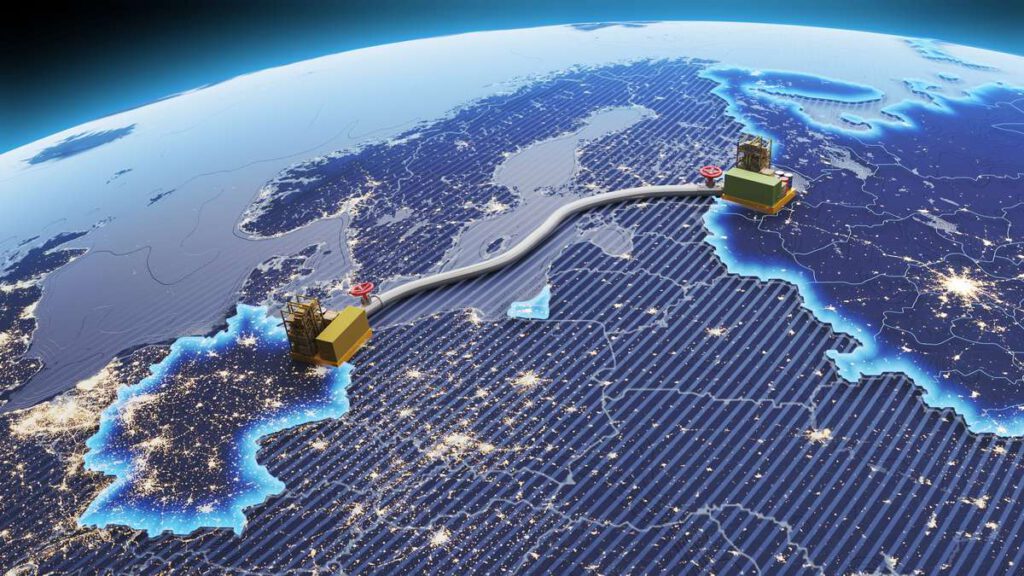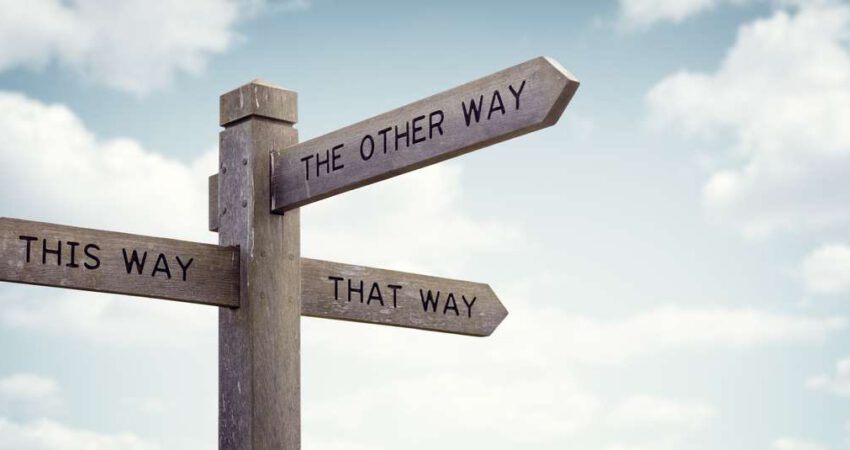The situation that has developed around Nord Stream 2 in recent months has become so confused that one almost wonders whether the pipeline exists at all. European politicians mention the project so often though, that one would think it had been operating and pumping billions of cubic metres a year to the European Union for a long time now. Energy Brief has been trying to understand the situation with this gas pipeline that has been built but not yet launched, and which could become a political bargaining chip.
The Nord Stream 2 project, which began under Angela Merkel, passed smoothly into the hands of the new German government of the Social Democrats and Greens. After the events in the Crimea in 2014, a vast number of objections were made to the project in the EU, and the Greens have consistently opposed the pipeline. Among those who have adhered to this opinion is Annalena Baerbock, who has become foreign minister in the new government. She has said that if there is a further escalation the pipeline will not be able to start work “just like that.” Ms Baerbock maintains this position even now.
In order for the pipeline to start working it needs to go through certification in German institutions and receive approval from the European Commission. On 10 September 2021, Gazprom head Alexey Miller announced that construction of the pipeline was complete. On 13 September certification documents were with the German Federal Network Agency (Bundesnetzagentur), which even began to scrutinize them. However, the process did not last long. As soon as 16 November the regulator announced a halt to the certification process. As it transpired, contrary German legislation, at the point when the documents were submitted only the Swiss operating firm operating the pipeline existed. The agency required the operator, the Swiss Nord Stream 2 joint stock company, to create a German subsidiary to operate the German section of the line and for it to transfer its main assets and staff to this subsidiary.
This was duly done. On 26 January the pipeline’s operator announced the creation of the Gas for Europe GmbH company which will deal with the further certification issues. It is expected that this process will now be extended. There is already one scandal associated with the company: according to media reports Dieter Walter Haller, the retired German ambassador to Saudi Arabia who was planning to head the supervisory board of the German Nord Stream 2 subsidiary has been ordered by his former employer, the German foreign ministry, not to take up the post. The ministry believed that there could be a conflict of interests and that the former ambassador could make inappropriate use of information gained from his previous role. In any case, there will be a long wait for certification and possible launch.
As the president of the German Federal Network Agency Jochen Homann has stated, the procedural steps for certification will take a much time and a decision is very unlikely to be taken before the end of June. Although a subsidiary company has been created in Germany and has been entered into the country’s trade register, this is not the end of the process. The company must submit documents and the agency must scrutinize them and if the outcome for the company is favourable, the agency must confirm certification. Homann has stated that the agency expects that Nord Stream 2 will submit all the necessary documents, but added that it will only be possible to restart the certification process when these have been produced in full. After Germany has made its decision, a document will be sent to the European Commission, which will have at least two months to examine it, after which the period can be extended for a further two months.

While technical issues are being resolved, political life does not stand still. For several months now there has been talk within the EU about Russia planning to attack Ukraine, and that this will inevitably entail new sanctions. These are currently being worked out, in case Brussels’ fears prove justified. If Chancellor Angela Merkel’s government did not consider it expedient to link possible new anti-Russian sanctions to the construction and operation of the new pipeline, there have so far been no such explicit denials from the current government of the Social Democrat Chancellor Olaf Scholz. Nevertheless, observers have seen a change in Scholz’s position in his recent statements. Whereas previously he has said that the pipeline is a purely private economic project, after a meeting in Berlin with the NATO Secretary General Jens Stoltenberg on 18 January he did not confirm this stance as usual but referred instead to agreements with the United States on the project, saying that the Germans were adhering to all aspects that relate to this. He has also said that there will be a high price to be paid in the event of military aggression towards Ukraine. Among other things, the agreement with the United States entails maintaining gas transit through Ukraine even after the new pipeline is launched, as Germany insists it should be.
If Scholz is restrained, Baerbock has already said that if there is a conflict between Russia and Ukraine the pipeline could also be subject to sanctions. She has spoken of the wide range of responses Germany has at its disposal, including Nord Stream 2. Speaking in the German parliament on 27 January, she expressed the view that although Germany wants a dialogue, the current situation also demands a toughness that will show unequivocally that the sovereign equality of states and the foundations of the European world order are not up for negotiation.
It is no secret that the United States is pressuring the European Union, and Germany in particular. The Americans believe that the launch of the pipeline will increase the EU’s dependence on Russian gas. Along with Qatar they are offering an alternative, their own liquefied gas, in return for long-term contracts and these supplies are already happening. Critics of this approach are not tired of pointing out that this gas will cost European consumers significantly more than Russian gas. While finance minister in the previous government, Scholz promised the Trump administration an investment in Germany’s LNG infrastructure to the tune of a billion dollars, in exchange for the United States refraining from imposing new sanctions on the pipeline. These talks are now continuing.
So, what do European consumers think about this? Current circumstances mean that the price they pay for gas could grow by around 70%, and they are beginning to blame national authorities for this. For example, on 31 January the Austrian newspaper Salzburger Nachrichten published a letter from a reader that suggests a view of the current situation that differs from the official one. In the letter, the reader writes of how Russia and the United States have been “battling for influence in eastern Europe for decades,” and accuses America of pressuring Russia and the EU and the Austrian government for indulging this, thus blaming it for the growth in gas prices. In the German Committee on Eastern European Economic Relations, an influential organization uniting German business with the countries of eastern Europe, they are certain that the European Union needs both Russian gas through Ukraine and the new pipeline. The organization’s head, Oliver Hermes, is certain that “the legislative certification of Nord Stream 2 should not have a political dimension; it should be a purely technical issue.”

